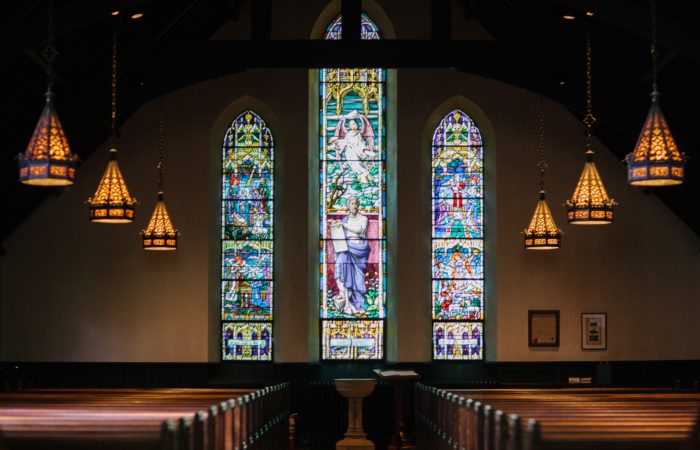
An Unsettling Passage About Work
Today we begin our devotional engagement with a most unsettling passage. Though it has much to say to us about our work, Ephesians 6:5-9 is a troubling passage because it addresses a particular work context: slavery. Something in us rightly recoils when facing such a passage, especially one that begins with instructions for slaves to obey their masters. We wish Paul in Ephesians had argued for the abolition of slavery, rather than accepting it. Our understandable feelings about Ephesians 6:5-9 can make it hard for us to attend to its teaching on work and to see how this passage profoundly undermines the institution of slavery, though not by attacking it directly.
Read Post
Bringing Up Children
The positive exhortation for fathers is to bring up children “in the training and instruction of the Lord.” This phrase could refer specifically to instruction in Christian doctrine. But it’s more likely that this verse teaches fathers that they are participating in the Lord’s work of training and instruction of children. Yes, fathers and mothers are responsible for bringing up their own children. But, more broadly, this is God’s work. Why is this important? First of all, it reframes the ancient notion of absolute paternal authority. Fathers exercise their authority under the supreme authority of God. Moreover, since they are to be submitted to their brothers and sisters in Christ, they can be held accountable to raise their children with love, justice, and grace.
Read Post
Honor Your Father and Mother in Memory
Before we leave the command in Ephesians to honor our parents, one borrowed from the Ten Commandments, I’d like to share something I’ve learned about honoring one’s parents even when they are no longer alive. People have many different ways of doing this. Some visit the graves of their parents on special occasions. Others hold on to keepsakes that remind them of their mom or their dad. Others offer regular prayers of thanks for their parents. Many pass on memories of their parents to their own children and grandchildren. The possibilities are limitless.
Read Post
Honor Your Father and Mother
Ephesians 6:1 is the first Bible verse I ever learned in Sunday School. My family and I had recently moved to Glendale, California. On a hot Sunday morning in September 1963, we visited the First Presbyterian Church of Hollywood. I joined the first grade department for a short worship service, after which several boys and I followed Miss Kane into a small classroom. There, we were introduced to Ephesians 6:1 in the King James Version: “Children, obey your parents in the Lord: for this is right.” In the next week, I dutifully memorized this verse. I hope I also put it into practice!
Read Post
The Act of Balancing Opposition Pt. 2
It’s not that we don’t expect things that challenge our beliefs to happen, or that we want all things to be perfect, but we do put boundaries on our acceptance of “other” or the unusual. We like to think we live in a world of up or down, black or white, wrong or right. But that’s not the world we actually live in from God’s perspective.
Read Post
The Act of Balancing Opposition Pt. 1
The portfolio of God is very diverse, and its nature is atmospheric and embedded with context about unity, harmony, and connection. The most powerful being in the universe, our God, loves compliments, attraction, and relationship.
Read Post
Prayers for Workers: Waiting Patiently for the Lord
Be still before the LORD and wait patiently for him (Psalm 37:7).
Read Post
What Can I Do to Love the Flawed Church?
One way to love the church is to be careful with criticism. I’ve been on the receiving end of church criticism and I can tell you it hurts, big time. Sometimes criticism is deserved, of course. I’m not saying we should sit back and ignore real problems and shortcomings. There is a time and place for critique. And there is a way to do it. When we point out what we perceive to be wrong with our church, we should do so in a way that is consistent with Ephesians 4:15, where we are called to speak the truth in love.
Read Post
How Do We Know that Christ Loves the Flawed Church?
Christ calls each of us to join him in work of church renewal, not only because the church is central to his plan for the cosmos, but also because he cherishes the church. Thus, rather than taking potshots at the bride of Christ, shouldn’t we find ways to affirm and embrace her? Rather than separating ourselves from the imperfect, wounded bride of Christ, shouldn’t we join Christ in his work of washing, cleaning, feeding, and caring for her? If Christ loves the church so much that he gave up himself for her, shouldn’t we seek to imitate his self-giving love in our relationship with the church?
Read Post
Christ Loves the Church in Spite of the Church’s Flaws and Failures
It’s also common today for believers to minimize the value of the church, to claim that we need Jesus, not the church. Post on Facebook that you love Jesus but not the church and you’ll get a slew of “Likes.” Yet if we were convinced that Jesus loves the church would we be so quick to reject his beloved? “But,” one might fairly protest, “the church the exists today is such a mess. The actual church is nothing like what Christ intended it to be. I can love the church as a theological ideal, perhaps, but the real church is just not lovable.” To be sure, the church has plenty of flaws. I’ve seen them, felt them, bemoaned them, and added to them. But does this allow me to fail to love the church?
Read Post
Christ’s Self-Giving Love for the Church
Ephesians 5:21-33, though offering instruction on the marriage relationship, actually has more to say about Christ and his relationship with the church than it does about husbands and wives. This passage reveals truths about Christ and the church that are not found explicitly anywhere else in Scripture. In fact, this is the only place in the Bible where it says plainly that Christ loves the church. We could derive this by implication from many other biblical texts, of course. But Ephesians 5:25 puts it plainly: “Christ loved the church and gave himself up for her.”
Read Post
Faith to Produce
Faith is uncomfortable, and is almost always associated with the impossible. It’s this unorthodox dance between God and human beings where God speaks surreal things and then we respond with obedience to produce supernatural or highly improbable results.
Read Post
Vocational Gratitude: Fall
We’ve all done it. Someone does something that offends us and they come to apologize. And, we say something like, “Oh, never mind. It’s ok.” We’re trying to make the other person feel better by saying that what he or she did didn’t really matter. But of course, that’s not really the case. It did matter. At least, it did to us. And, when we take that tack, we’ve missed something important.
Read Post
Share Your Gratitude with Others!
When I hear what you’re thankful for, not only can I join you in your gratitude, but also I am reminded of gifts for which I also am thankful and may not have remembered until I heard from you.
Read Post
Double Your Delight in Thanksgiving Dinner
Gratitude is like this. It’s a kind of slowing down. It’s attending to things rather than simply consuming them. It’s acknowledging our debts, counting our blessings. Gratitude heightens our awareness of good things. It enables us, in a way, to enjoy them all over again.
Read Post